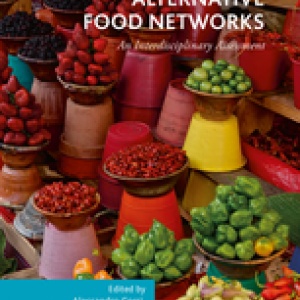
This book, edited by Alessandro Corsi, Filippo Barbera, Egidio Dansero and Cristiana Peano, discusses the prospects for the development of alternative food networks and uses the Italian region of Piedmont as a case study to look at alternative food networks from a variety of perspectives.
Publisher’s summary
In recent years, Alternative Food Networks (AFNs) have been a key issue both in the scientific community and in public debates. This is due to their profound implications for rural development, local sustainability, and bio-economics. This edited collection discusses what the main determinants of the participation of operators – both consumers and producers – in AFNs are, what the conditions for their sustainability are, what their social and environmental effects are, and how they are distributed geographically. Further discussions include the effect of AFNs in structuring the food chain and how AFNs can be successfully scaled up.
The authors explicitly take an interdisciplinary approach to analyse AFNs from different perspectives, using as an example the Italian region of Piedmont, a particularly interesting case study due to the diffusion of AFNs in the area, as well as due to the fact that it was in this region that the ‘Slow Food’ movement originated.
Reference
Corsi, A., Barbera, F., Dansero, E., and Peano, C. (eds.), 2018. Alternative food networks: an interdisciplinary assessment. Palgrave Macmillan, Basingstoke.
Read more here. See also the Foodsource resource What interventions could potentially shift our eating patterns in sustainable directions?







Post a new comment »